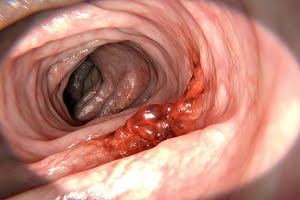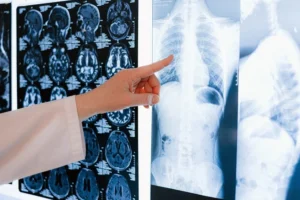Hemorrhoids VS Colon Cancer – Is It Hemorrhoids or Colon Cancer?
- Updated on: Jul 15, 2024
- 3 min Read
- Published on Jul 8, 2022

Hemorrhoids vs. Colon Cancer
Colon cancer (bowel cancer or colorectal cancer) and hemorrhoids are two different conditions, but they can produce certain similar symptoms such as blood in the stool. Blood in the stool can be alarming, particularly if you have never experienced it earlier.
Generally, if blood appears in the stool due to straining when having a bowel movement, it is a hemorrhoid. But sometimes, blood in the stool may be an indication of something serious.
Without additional testing and diagnosis, the two conditions can be indistinguishable particularly in the early stages. In fact, about 90% of patients with colon cancer or rectal cancer reported that they initially believed to have hemorrhoids, according to StopColonCancerNow. Even skilled physicians can make a mistake in the diagnosis of colorectal cancer for hemorrhoids. Additional testing is generally required to make an accurate diagnosis and differentiate between them.
Let’s explore a little more about both these conditions and compare the two.
Hemorrhoids
Hemorrhoids develop when the veins around the anus become swollen and inflamed. There are two types of hemorrhoids – internal and external hemorrhoid. Both internal and external hemorrhoids are painful and can cause itching. Common symptoms of hemorrhoids are:
- Itching
- Extreme pain
- Itchy lumps
- Painful bowel movements
- Blood in the stool etc.
Read more about signs and symptoms of hemorrhoids.
Read this article to learn more about hemorrhoids: What are hemorrhoids?
Hemorrhoids are a temporary problem for most people. Symptoms may flare up due to strains in bowel movements and then subside.
Colorectal Cancer (Colon Cancer or Bowel Cancer)
Colon Cancer is a cancer formed from uncontrolled cell growth in the colon or rectum of the large intestine. It often starts with small, noncancerous polyps that develop on the inner walls of the colon or large intestine. Some of these polyps may grow into malignant cancers over time if not treated on time. Not all polyps develop into cancers. Only about 5% of the polyps develop into malignant cancers but all polyps should be removed to avoid them converting into cancerous tissues.
Common symptoms of colon cancer are:
- Blood in the stool
- Lumps in the abdomen
- Weight loss that is unexplained
- Weakness and fatigue
- Stomach pain that is often severe
- A change in your bowel habits
Read more about symptoms of colon cancer.
Do I have hemorrhoids or colon cancer? Difference in symptoms
Here we list common things to understand the major differences between a hemorrhoid and colon cancer:
- Colon cancer patients have bleeding, a change in the consistency of their stools and a detectable growth of cells in the anus.
- Patients with anal cancer may develop diarrhea or constipation as part of changed bowel habits, whereas persons with hemorrhoids generally have a history of chronic constipation.
- Bleeding is generally dark or bright red in color if it is colon or anal cancer while it is bright red in hemorrhoids.
- Fresh red blood indicates that the blood is coming from a lower region of the anal canal and is considered a characteristic differentiating symptom for hemorrhoids.
- A soft swelling with a feeling as if something is popping out of the anus is often seen in hemorrhoids. This does not usually happen in colon cancer.
- Swelling of lymph nodes and abnormal discharge occurs from the anus in colon cancer but is never seen in hemorrhoids.
- A hard growth within or around the anus is generally due to cancer, whereas the hemorrhoids are soft tissue growths and can be felt to touch.
- A person with hemorrhoids generally has a normal appetite and there is no weight loss but in a person with colon cancer, there is a loss of appetite. Unexplained weight loss and weakness are noted in colon cancer.












